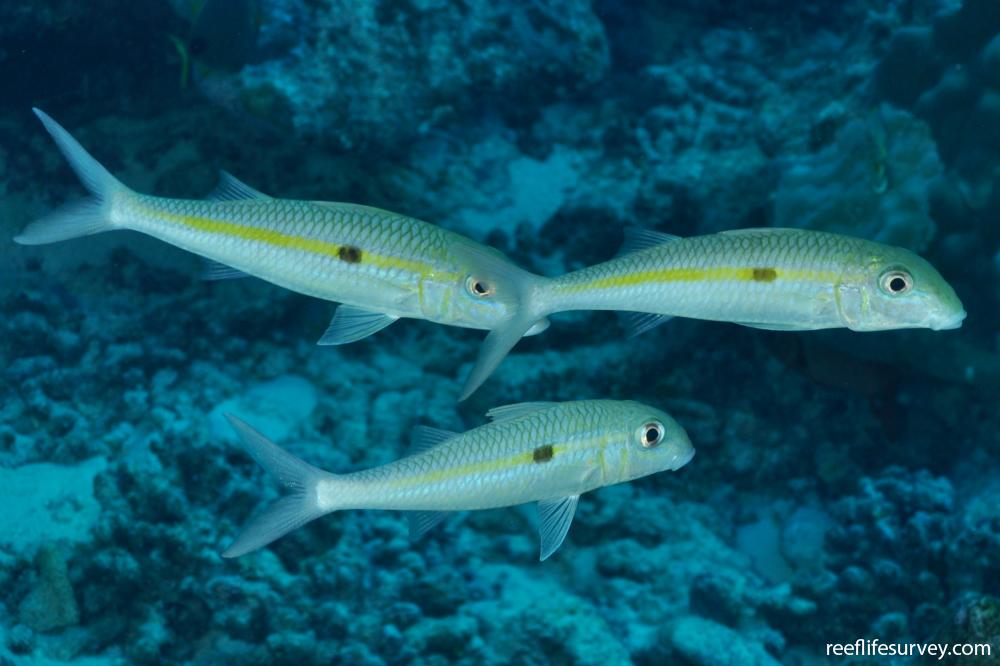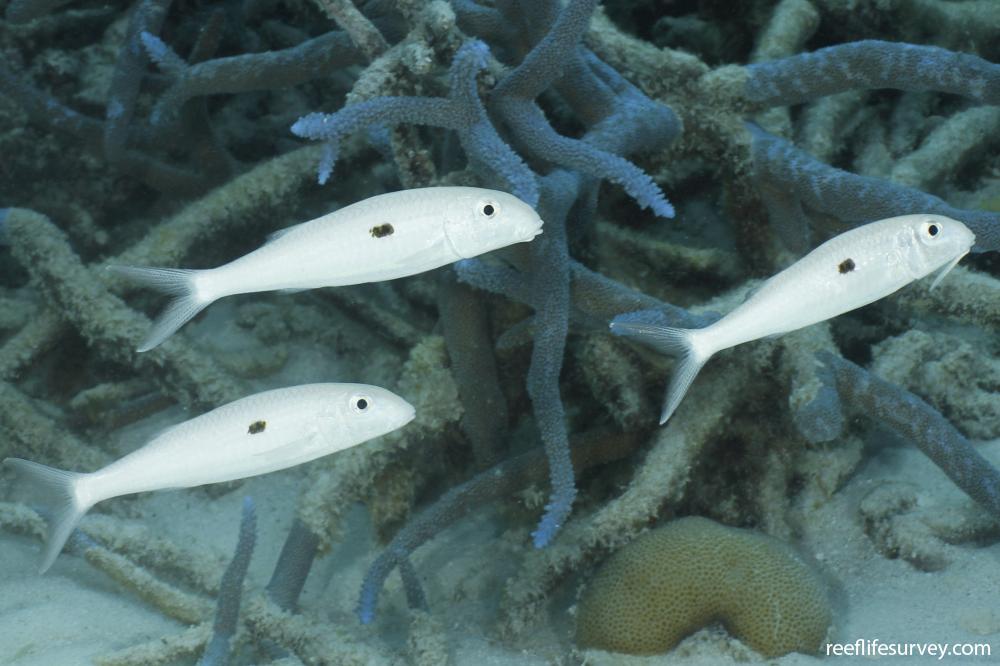Mulloidichthys flavolineatus
Yellowstripe Goatfish | Bait Goatfish | Gold-lined Goatfish | Pallid Goatfish | Samoan Goatfish | Sand Weke | Slender Goldband Goatfish | Square-spot Goatfish | White Goatfish | White Weke | Yellow-lined GoatfishSimilar Species
Same Genus
Distribution
Tropical Indo-Pacific
Description
Slender pale body, with an elongate rectangular black patch in a yellow stripe along side from eye to tail base, blunt head profile and small barbels below chin. Aggregates in large inactive schools during day, moving out to forage at night. Similar M. vanicolensis (Goldstripe Goatfish) has yellow fins and no black blotch, and sometimes schools with M. flavolineatus.
Information
Max Size: 43 cm
Sea Temperature Range: 19.1-30.8°C
Depth: 1-76 m
Habitat Generalization Index: 10.72
Also referred to as the SGI (Species Generalisation Index), this describes the habitat niche breadth of the species. Species with values less than 15 are found in a relatively narrow range of reef habitat types (specialists), while those over 25 may be found on most hard substrates within their range (generalists). Learn more here.
Conservation and Rarity
IUCN Status: Not Evaluated
Occurrence: Infrequent (9.9% of sites)
Occurrence describes how often the species is found on surveys within its distribution. It is calculated as the % of reef sites surveyed by RLS divers across all the ecoregions in which the species has been observed
Abundance: Many (14 per transect)
Abundance is calculated as the average number of individuals recorded per RLS transect, where present.
Edit by: RD Stuart-Smith, GJ Edgar, AJ Green, IV Shaw. 2015. Tropical Marine Fishes of Australia. Reed New Holland

















